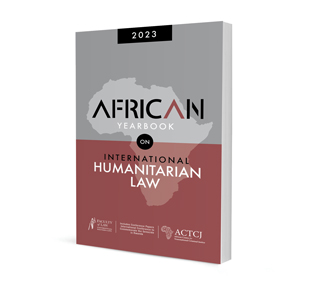Developments in the prevention and punishment of genocide after Rwanda: Actors, approaches and challenges

ARTICLE
Developments in the prevention and punishment of genocide after Rwanda: Actors, approaches and challenges
Authors: Linda Mushoriwa & John-Mark Iyi
ISSN: 2521-2621
Affiliations: Researcher at the African Centre for Transnational
Criminal Justice, Faculty of Law, University of the Western Cape; Professor and Director, African Centre for Transnational Criminal Justice, Faculty of Law, University of the Western Cape
Source: African Yearbook on International Humanitarian Law, 2023, p. 1 – 19
https://doi.org/10.47348/AYIH/2023/a1
Abstract
In May 2024, the African Centre for Transnational Criminal Justice hosted a conference to commemorate the 30th anniversary of the genocide against the Tutsis in Rwanda and the legal developments that have occurred since then. In line with the theme of the conference, ‘Genocides as Critical Junctures: in Search of an African Vision of International Criminal Justice’, 35 conference participants presented their papers on the different thematic areas. This introductory article provides an overview of the papers that were selected for publication in this issue of the African Yearbook on International Humanitarian Law (AYIHL). The article begins with a brief background of the history of genocide in colonial Africa, from the Herero and Nama genocide committed by Germany between 1904 and 1908 to the genocide against the Tutsis in Rwanda in 1994. It then outlines the issues addressed in the selected papers in this issue of AYIHL, such as the definition and interpretation of the term ‘genocide’, accountability for aiding and abetting the crime of genocide, and the role of transitional justice mechanisms as genocide prevention tools. The article concludes that the issues addressed call into question the commitment by various role players, including the regional economic communities and regional organisations, such as the African Union, to prevent and punish genocide.